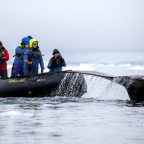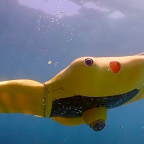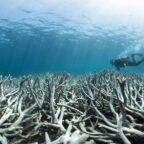
Katrina and Rita have kicked off a debate among scientists over the impact of global climate change on hurricane intensity, but it doesn’t appear the environmental issue has grabbed the attention of Washington.
Scientists have been reluctant to cite climate change as the cause for the recent spate of Atlantic hurricanes in light of inconclusive data. But recent studies indicate that the increasingly violent nature of the storms over the past 35 years could be attributed to global warming.
One study appearing in the Sept. 16 issue of Science said rising sea-surface temperatures, a global warming effect, may contribute to the growing intensity of hurricanes.
Researchers at the School of Earth Atmospheric Sciences at Georgia Tech and the National Center for Atmospheric Research claim the number of Category 4 and 5 hurricanes has almost doubled since 1970, going from 10 a year in the 1970s to 18 a year in the 1990s, even though the number of hurricanes actually has declined. Sea-surface temperatures have increased by about a half a degree Centigrade over the same time.
That study jibes with research conducted by Kerry Emanuel, a professor of meteorology at the Massachusetts Institute of Technology, who found that the amount of energy released by hurricanes in the North Atlantic and the North Pacific has increased since the mid-1970s.
But Washington has, to this point, all but ignored the debate on global climate change, although some provisions in the recently passed energy bill promoting alternative energy sources could be seen as a nod in that direction. That same bill, however, includes $13.1 billion in tax breaks for greenhouse-gas-emitting industries, including $4 billion for the oil industry.
In one of his earliest White House actions, President Bush rejected the Kyoto Protocol, which would limit carbon-dioxide production. Bush said that its measures would prove too costly, while maintaining that developing nations should not have been excluded from the early rounds of emissions caps.
Since then, the president said global warming is a subject in need of additional study. And he recently approved a little-noticed accord with Australia, China, India, Japan and South Korea to combat climate change by shifting to cleaner energy technology. Members of the partnership account for half of global greenhouse-gas production, but, unlike Kyoto, the new pact doesn’t require emissions caps.
Congress hasn’t proved eager to address the matter.
Earlier this year, Sen. John McCain, R-Ariz., and Sen. Joseph Lieberman, D-Conn., introduced the Climate Stewardship Act. The legislation calls for additional scientific research on abrupt climate change and an accelerated reduction of U.S greenhouse-gas emissions through a market-driven system. The bill has languished in the Senate Committee on Environment and Public Works, and is an unlikely candidate for consideration this year.
Some of that disinterest can be attributed to the panel chairman, Sen. James Inhofe, R-Okla., who has not been shy about expressing his contempt for the theory of global warming, calling it the “greatest hoax ever perpetrated on the American people.”
In a Senate floor speech earlier this year, Inhofe said skeptics “have amassed additional scientific evidence convincingly refuting the alarmists’ most cherished assumptions and beliefs.” Inhofe called those warning about climate change “fear-mongers,” and that proposals like those in the Kyoto Protocol “harm Americans.”












Social Profiles